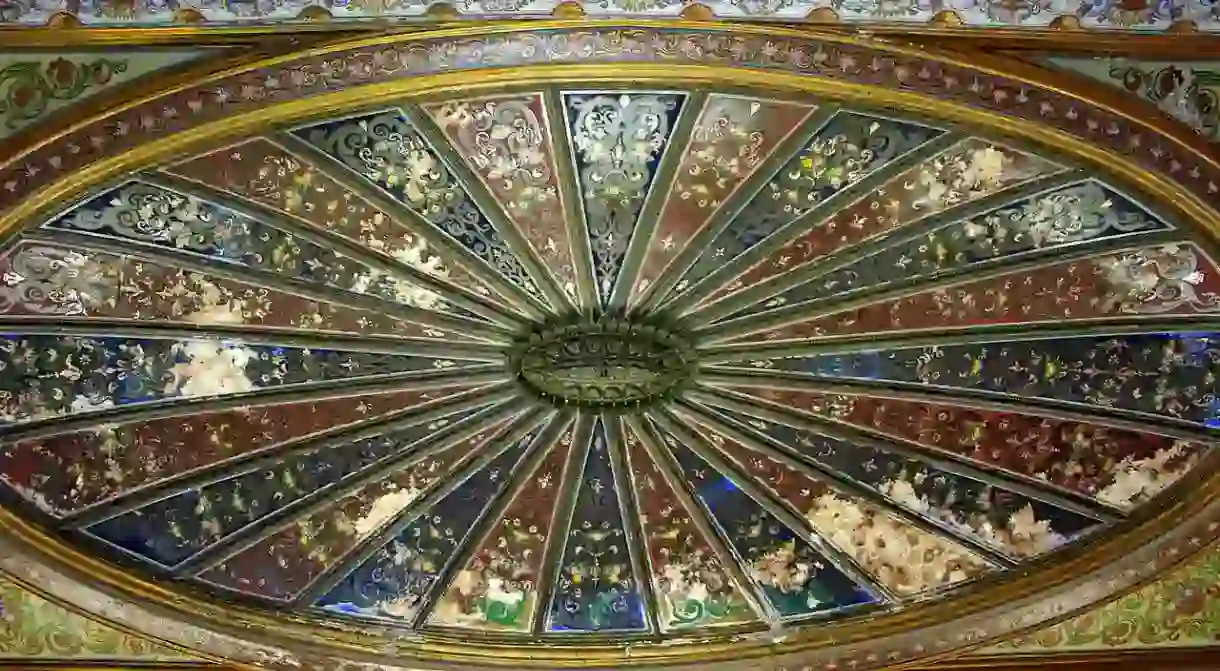The Best Galleries To Visit In Tunisia

Tunisia is one of the wealthiest and most economically stable African countries, yet remains distinctly absent amongst the continent’s cultural scene. We take a look at the top galleries to visit in Tunisia, and the artistic revival contributing to a slowly changing arts scene within North Africa.
B’Chira Art Centre
Art Gallery, Concert Hall, Building

The B’Chira Art Centre is a Contemporary Art center located in Sabelet Ben Ammar, twenty minutes from the capital of Tunis. Founded in 2011 by artist B’chira Triki, it is located in a staggering garden of 10,000 square meters, in an area totally immersed in the heart of nature. The Centre is dedicated to several fields of the arts — painting, performance, installation, photography, sculpture, drawing, design and video. All aspects of artistic endeavor are embraced along with specific objectives. These include the discovery and preservation of young artists, the promotion and dissemination of contemporary art and networking through partnerships with international organizations in order to promote cultural exchange and sharing of knowledge on contemporary art and culture in general. A visit to the Centre is a multi-sensory experience combining pleasures of both ‘the senses and mind’. Revolving around two buildings — the first consists of three levels and offers art workshops, an exhibition gallery and a terrace with a panoramic view of a sculpture garden and the hills of Bizerte. The second is the ‘Coffee Art’ meeting room, a forum for cultural ideas and exchanges. A truly multi-dimensional center, B’Chira Art Centre is worth your time upon a visit to Tunisia.
Galerie El Marsa
Founded in 1994, Galerie El Marsawas founded in 1994 and aims to promote artists from the Arab world and beyond. Through an array of practices from painting, sculpture, photography and installation, the gallery engages with artists who emphasize a shared sense of humanity and emotion — highlighting a variety of coexisting attitudes and strategies in contemporary art. In their own words, Galerie El Marsa is turned toward ‘innovation with the aim of creating a synergy between the various existing expressions. Linking modern values of the present times and tradition… targeting a specific social environment.’ All year long, the gallery presents a variety of shows featuring major outstanding artists who contributed to the advance of art in the Arab world throughout the century. Artists presented at the gallery have been both the authenticity and incarnation of modernism, like Hatim El Mekki and Abdallah Benanteur. The continuously changing panel of leading Tunisian artists spans almost three artistic generations. The wide selection of works on display at the gallery reflects the contemporary artistic scene of both Tunisia and the outer nucleus of North Africa. Bernard Delettrez, Installation view 1 | © galerie el marsa
Le Violon Blue
Art Gallery

An innovative contemporary art gallery in Tunisia, Le Violon Bleu was created in Tunisia at the initiative of Essia Hamdi; a professor of Literature and art enthusiast in early 2004. Since it’s creation, the gallery has built a significant presence as a leader in the field of contemporary North African and Middle Eastern art. Situated on the hillside of the Sidi Bou Said village, the building is entirely blue and white and is the ideal location to soak in breathtaking views of Carthage and the Mediterranean Sea. The gallery’s emblem is a blue violin – a tribute to Yves Klein and the door of the gallery consists of a single violin. Le Violon Bleu chooses established artists of international renown – the finest in both Tunisian and international art. In order to promote quality within their selections, Essia Hamdi only organizes several exhibitions a year and alternates between Tunisian and international artists. A branch under the same ownership also opened in Central London in the year of 2006.
The National Bardo Museum
Museum

The National Bardo Museum is the oldest and most important of the Tunisian exhibit spaces. Established over a century ago on the premises of a Beylical palace, it underwent several refurbishments in order to accommodate the Museum’s expanding collections. Thousands of objects are on show for your perusal — from objects originating from excavations carried out many hundreds of years ago to Contemporary Islamic art. The Islamic department is housed in an Arab-Islamic setting and encloses objects from various periods — manuscripts, jewelry, wood, carved stone and utilitarian objects are all housed in two small rooms. The collection of mosaics from the Roman period also has a resounding reputation as one of the richest and refined collections in the world. The Museum itself is divided into departments of approximately fifty rooms and galleries, illustrating the various stages of Tunisia’s history. In order to get a true sense of the country, a visit to the Bardo is imperative during your visit.













